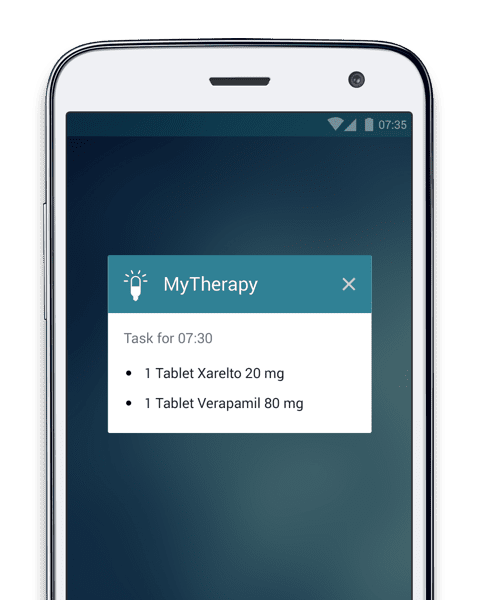Atrial Fibrillation (AFib) is the most common type of heart arrhythmia, causing an irregular heartbeat in those who have it. Symptoms often include a racing heartbeat or heart palpitations, shortness of breath, and unusual fatigue, although many people with AFib have few symptoms and remain oblivious of their condition. But even those whose AFib is asymptomatic are at a much greater risk of stroke. In fact, between 15-22% of all stroke cases in the USA are linked to AFib. However, when diagnosed early it is possible for those with AFib to receive the treatment they need to tackle the condition, while making lifestyle changes that will help medication have the optimal effect.
September is Atrial Fibrillation Awareness Month, so we have teamed up with AF Association and Arrhythmia Alliance to produce an infographic to help you understand what AFib is, how many people are affected by it, and how apps can play a key role in helping those with AFib take control of it.

Atrial Fibrillation: What it is and the risks it carries
The heart has four chambers, the top two of which are called the atria. Their job, in layman’s terms, is to receive blood from around the body and drop it off downstairs to the other two chambers – the ventricles – from where it is subsequently pumped back throughout the body. To successfully make the delivery, the atria must contract, an action controlled by the heart’s natural pacemaker sending regular electrical impulses. In those with AFib, these impulses get sent from multiple parts of the atria, preventing the pacemaker from effectively controlling the rhythm of the heart. Rather than fully contracting, the atria quiver (or fibrillate), resulting in only a portion of the blood making it to the ventricles.
The heart quivers 300-400 times per minute, rather than fully contracting 60-80 times per minute as it should, allowing blood the opportunity to pool in a little pouch called the atrial appendage. When blood can pool, it can clot. Should such a clot break loose and find itself pumped back in to the body, it can block arteries and cut off blood supply. A stroke is caused when this blood supply is intended for the brain. It is this process that makes those with AFib five times more likely to have a stroke than the general population.
The risk of AFib increases with age, as does the subsequent threat of a stroke. It is often the result of pre-existing conditions such as high blood pressure and heart disease that have gone untreated. As serious as AFib is, when diagnosed early it can be controlled, and the risks mitigated.
How apps can help fight AFib
Of course, when dealing with a condition as serious as AFib, your doctor will be responsible for prescribing treatment and offering advice that suits you. Each case of AFib is unique to the individual, and a range of factors such as age, gender, coexisting conditions, and medical history all contribute in determining the required course of action. Nonetheless, there are a few steps you as a patient can take to ensure your prescribed treatment is successful. Your smartphone is a remarkable piece of technology, and one you can utilise to improve your health.
Stay on top of your medication
When diagnosed with AFib, you will likely be prescribed at least one form of medication, possibly more. These include drugs that help manage your heartbeat, as well anticoagulants such as Warfarin, Xarelto, Eliquis, or Pradaxa. For medication to be truly effective, it must be administered as your doctor intended. MyTherapy (available for iOS and Android) reminds you to take your medication on time, as well as allowing you to track vital statistics and keep and activity journal. All the information can be summarized in a health report for you to print and share with your doctor.
Life an active lifestyle
Making changes to your lifestyle can help combat the effects of AFib, while also tackling other health problems and improving your overall quality of life. Exercise is a perfect example of this, as even moderate exercise can help you control your weight and reduce your heartbeat. Apps like ‘7 Minute Workout’ can be tailored to suit your needs, and help keep you motivated. With the help of your doctor, you can create a workout plan that will enable your body to perform as smoothly as possible.
Cut out the risk factors
High blood pressure, poor diet, and smoking are three of the major risk factors for AFib. It’s never too late to make changes though, and improving your overall health can drastically reduce your chances of having a stroke, even after being diagnosed with AFib. ‘Lifesum’ and ‘Smoke-Free’ are two apps that track your process and help you reach your goals. Making these changes also helps mitigate the risk of contracting other serious diseases such as diabetes and cancer.
Why Apple has joined the battle against AFib
Tech giant Apple has teamed up with Stanford Medicine and American Well to study how the heart rate sensor in its new smartwatch can help detect AFib. A similar study presented in May of this year by Cardiogram, whose software analyses heart rate data, found the previous incarnation of the Apple Watch was able to detect AFib with 97% accuracy. Apple, with the added benefit of having real-time access to the raw data from its heart rate sensors, hope to build upon this, allowing it to further develop the technology. This could prove to be hugely beneficial in diagnosing AFib, even in those whose condition is asymptomatic. Read about the study here: - Apple Watch: Why Tim Cook Bets on Diagnosing Atrial Fibrillation.
Atrial Fibrillation claims more lives than it should. A few healthy lifestyle can help prevent AFib, while taking advantage of the latest technology can help detect and control AFib when it can't be avoided.
If you like this post, you may also like:


